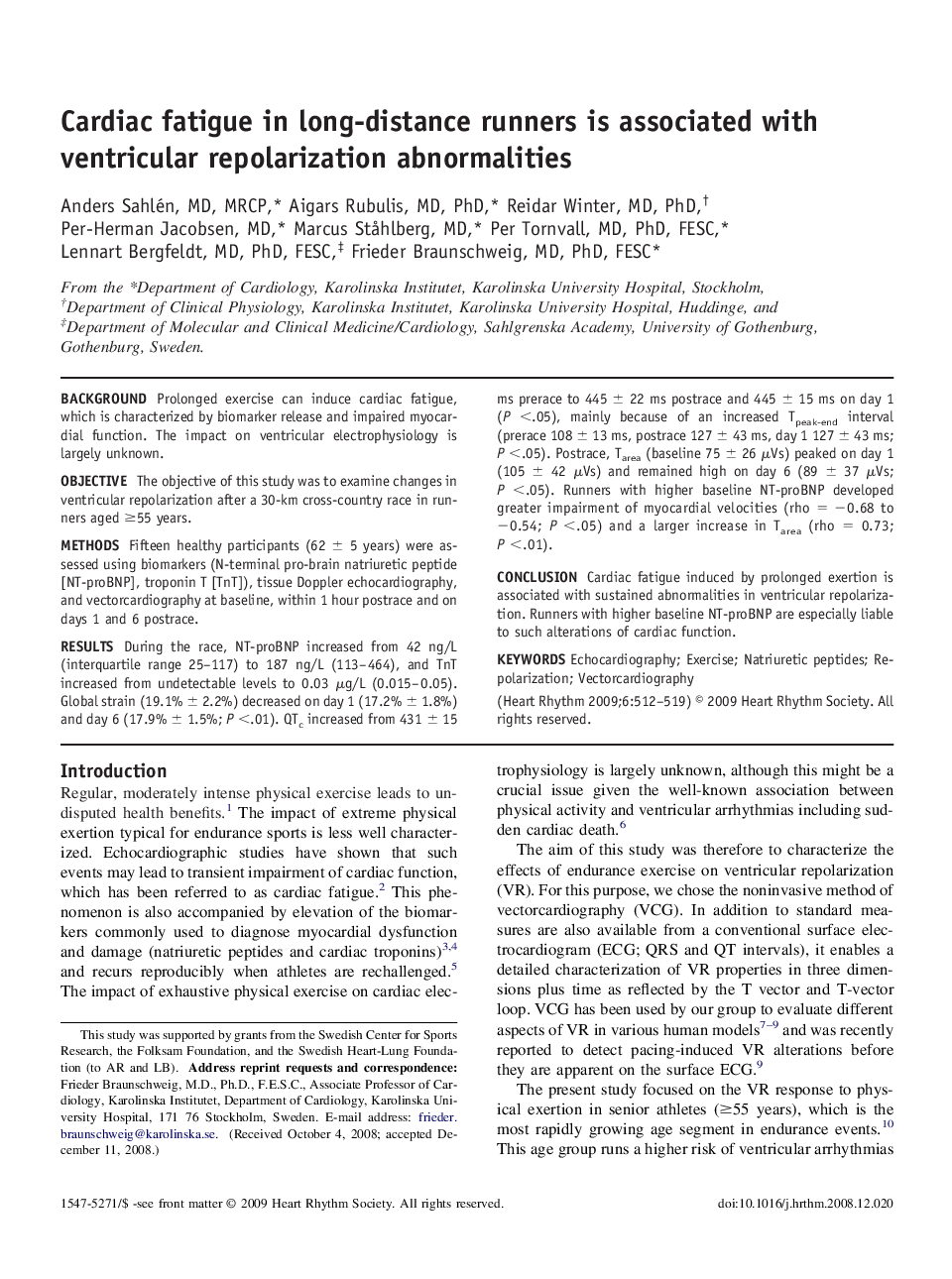| Article ID | Journal | Published Year | Pages | File Type |
|---|---|---|---|---|
| 2925030 | Heart Rhythm | 2009 | 8 Pages |
BackgroundProlonged exercise can induce cardiac fatigue, which is characterized by biomarker release and impaired myocardial function. The impact on ventricular electrophysiology is largely unknown.ObjectiveThe objective of this study was to examine changes in ventricular repolarization after a 30-km cross-country race in runners aged ≥55 years.MethodsFifteen healthy participants (62 ± 5 years) were assessed using biomarkers (N-terminal pro-brain natriuretic peptide [NT-proBNP], troponin T [TnT]), tissue Doppler echocardiography, and vectorcardiography at baseline, within 1 hour postrace and on days 1 and 6 postrace.ResultsDuring the race, NT-proBNP increased from 42 ng/L (interquartile range 25–117) to 187 ng/L (113–464), and TnT increased from undetectable levels to 0.03 μg/L (0.015–0.05). Global strain (19.1% ± 2.2%) decreased on day 1 (17.2% ± 1.8%) and day 6 (17.9% ± 1.5%; P <.01). QTc increased from 431 ± 15 ms prerace to 445 ± 22 ms postrace and 445 ± 15 ms on day 1 (P <.05), mainly because of an increased Tpeak-end interval (prerace 108 ± 13 ms, postrace 127 ± 43 ms, day 1 127 ± 43 ms; P <.05). Postrace, Tarea (baseline 75 ± 26 μVs) peaked on day 1 (105 ± 42 μVs) and remained high on day 6 (89 ± 37 μVs; P <.05). Runners with higher baseline NT-proBNP developed greater impairment of myocardial velocities (rho = −0.68 to −0.54; P <.05) and a larger increase in Tarea (rho = 0.73; P <.01).ConclusionCardiac fatigue induced by prolonged exertion is associated with sustained abnormalities in ventricular repolarization. Runners with higher baseline NT-proBNP are especially liable to such alterations of cardiac function.
